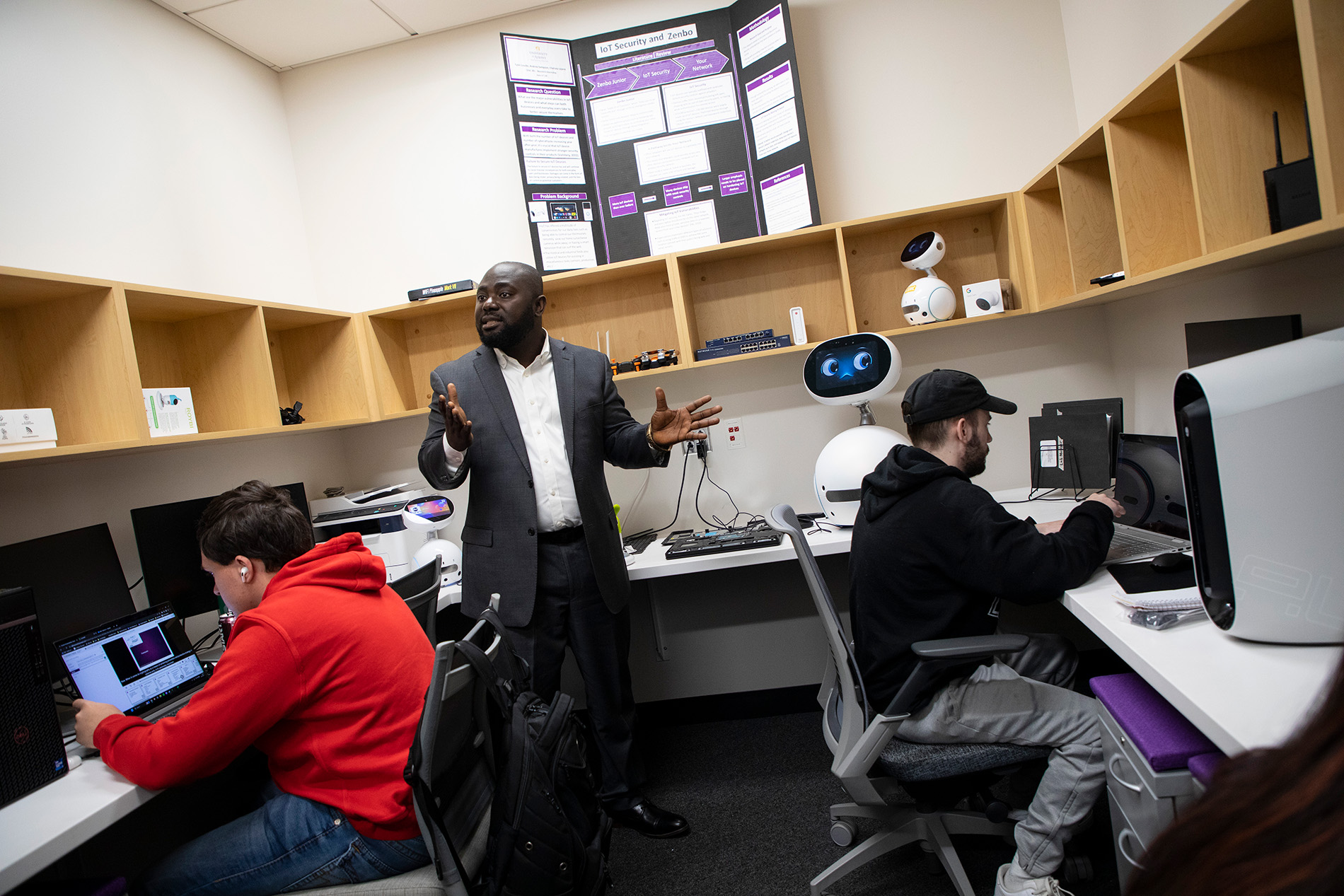CEHC Launches Revamped Undergraduate Cybersecurity Program

By Mike Nolan
ALBANY, N.Y. (Jan. 6, 2025) — In today’s digital world, cyber attacks are becoming more sophisticated and impacting organizations across all sectors. Yet, the supply of professionals who have the skills necessary to prevent and respond to these crimes continues to fall short.
As of last year, there were about 3.5 million unfilled jobs in cybersecurity globally, including an estimated 750,000 in the United States, according to a report released by Cybersecurity Ventures. That number is expected to grow significantly, with the U.S. Bureau of Labor Statistics forecasting a 32% increase in cybersecurity jobs by 2032.
The College of Emergency Preparedness Homeland Security and Cybersecurity (CEHC) at the University at Albany has announced a revamped undergraduate program that will focus on preparing students to meet that demand.
Available to students starting in Fall 2025, CEHC has revised the curriculum of its existing Bachelor of Science in Cybersecurity program to focus on the changing cybersecurity landscape, including the emergence of AI-powered threats.
The modified program has three primary tracks — cyber defense, cyber risk management and policy, and cyber operations.
"As the digital world continues to evolve, so too does the nature of cybersecurity. Rapid technological advancements have created new challenges to keep sensitive information safe, along with opportunities for innovation,” said CEHC Dean Robert Griffin. “Our revised program is in response to the immediate needs of the cybersecurity workforce, but also will strategically position students to adapt to the ever-changing landscape of cyber threats and technologies.”
Meeting cyber workforce demands
The modified program consists of 57 credits for students in the cyber defense and cyber risk management and policy concentrations. The cyber operations concentration extends to 71 credits.

In addition, there is a self-guided concentration where students will collaborate with their advisors to select a cohesive set of courses that align with a cybersecurity concentration topic of their interest.
Each of the program tracks can be completed in person or online.
"We know that both traditional and non-traditional students from all kinds of backgrounds may be interested in cybersecurity careers,” said Ariel Pinto, professor and chair of the Cybersecurity Department at CEHC. “This new program is designed to meet the demands of the growing cybersecurity workforce, both in-person and online, giving students the flexibility to choose what works best for their needs.”
Outside of coursework, students will be offered experiential learning opportunities with industry partners and through research with state-of-the-art facilities including the Hack-IoT, AI in Complex Systems and Cyber Cascade Risk labs.
UAlbany also hosts the Virtual Institute of Cyber Operation and Research, a $1.5 million virtual institute funded through the U.S. Department of Defense that aims to help train the next generation of cybersecurity professionals for future military and civilian leadership positions.
Rapidly growing major
CEHC was established to help meet a growing need for security and preparedness professionals. Since its launch in 2015, the College has grown rapidly, now enrolling more than 2,000 students, between its undergraduate, graduate and certificate programs.
Over the last few years, cybersecurity has experienced the largest growth among the College’s program offerings.
Unal Tatar, CEHC assistant professor and director of the undergraduate cybersecurity program, believes the program could expand into one of the largest in New York.
“When we designed this program, we envisioned a place for everyone within the field of cybersecurity, whether their interests lie in defense, offensive operations, or management,” Tatar said. “Our aim is to provide students with a robust foundation that empowers them to specialize in any of these areas, enabling them to pursue careers they are passionate about and make impactful contributions to the field.”
Accelerated graduate degree
At the graduate level, UAlbany offers an interdisciplinary master’s program in digital forensics and cybersecurity, a joint effort between CEHC and the Massry School of Business.
This unique 36-credit program includes five concentrations —cybersecurity, digital forensics, cyber operations, cyber risk management and compliance, and cybersecurity and privacy of health information.
The modified undergraduate cybersecurity program will include a 4+1 option that offers a cost-efficient path for students interested in continuing their education.




